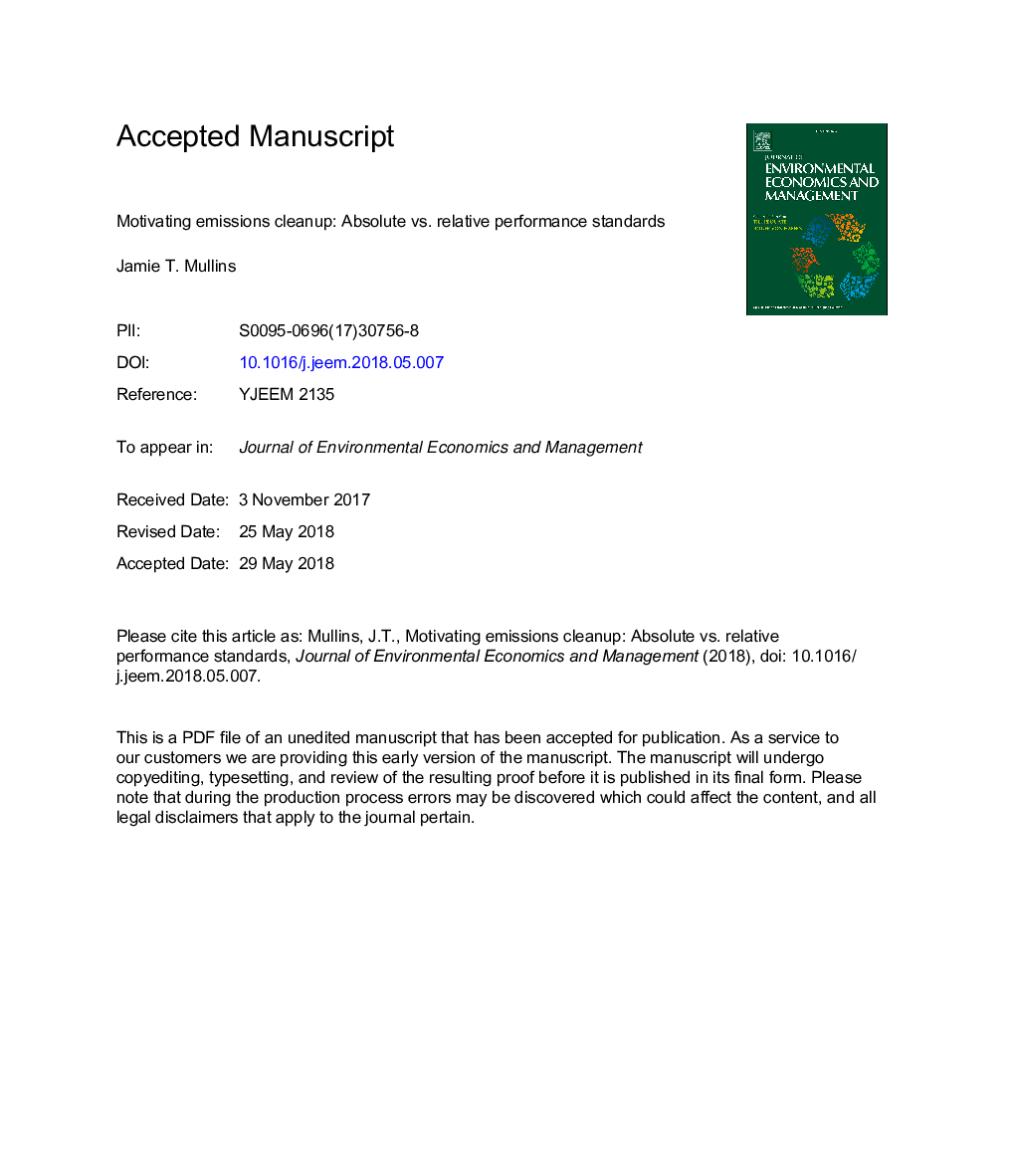| Article ID | Journal | Published Year | Pages | File Type |
|---|---|---|---|---|
| 7361155 | Journal of Environmental Economics and Management | 2018 | 42 Pages |
Abstract
This article empirically compares the effectiveness of relative versus absolute performance standards in motivating compliance actions. By leveraging a unique set of Chilean administrative panel data, I examine a natural experiment created by a change in the performance standard used to incentivize the reduction of particulate matter in the atmospheric emissions of stationary pollution sources in the Santiago Metropolitan Region. I find that the absolute standard drove â¼21% less emissions cleanup than did the relative standard. I also demonstrate how sharp heterogeneity in responses to the change in standards is predictable based on an ex-ante identifiable type-categorization, which leads to the broadly-applicable conclusion that stricter regimes drive more compliance actions when imposed via an absolute performance standard compared to a relative standard. The extension of this framework provides a general means of anticipating whether an absolute or relative performance standard will drive higher rates of compliance actions in other settings.
Keywords
Related Topics
Social Sciences and Humanities
Economics, Econometrics and Finance
Economics and Econometrics
Authors
Jamie T. Mullins,
